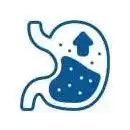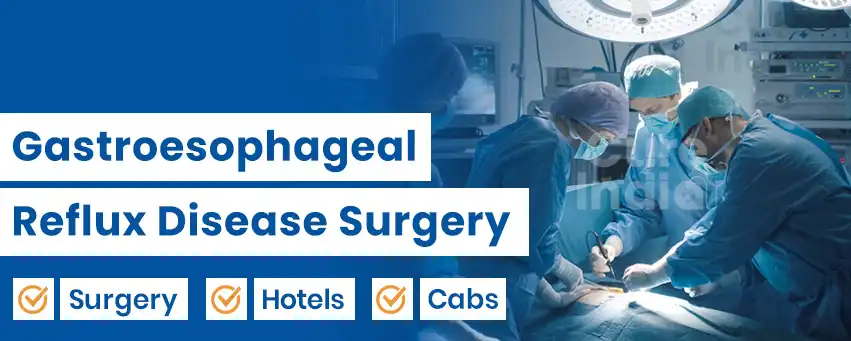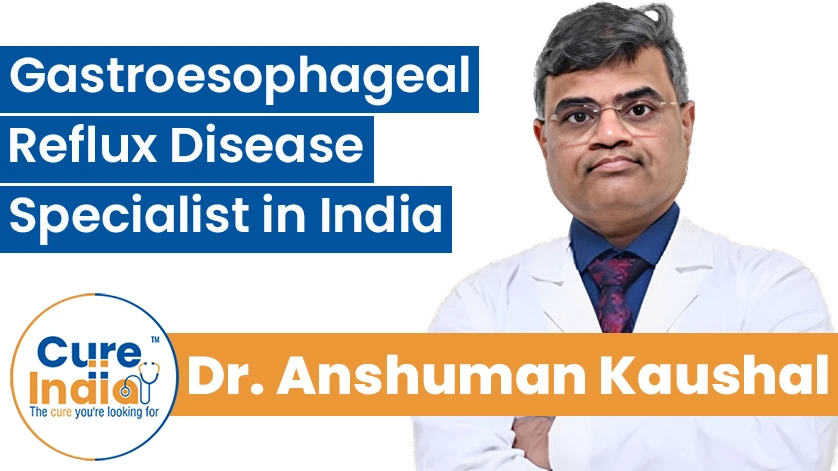

Gastroesophageal reflux disease (GERD) happens when acidic gastric acids or food and liquid from the stomach rise back into the throat, causing pain, burning, and irritation. People of various ages may be affected by GERD, from babies to the elderly. Asthmatics are more likely to develop GERD. At flare-ups, asthma may loosen the muscle that keeps stomach contents from flowing back into the throat, resulting in reflux into the oesophagus. Asthma drugs have been linked to an increased risk of heartburn and GERD.
While acid reflux may worsen asthma symptoms, it can cause airway and lung irritation. This inflammation may trigger allergies, and the airways can become more sensitive to smoke or cold air. These conditions may lead to more severe asthma as a result.
A number of Africans are visiting India each year for GERD treatment as this gastro treatment is not only very affordable but also of very high quality here. CureIndia helps connect patients with experienced gastro specialists for the best quality treatments. This page will be a patient's guide to everything about availing GERD treatment in India.
Sphincter weakening or loosening is the primary cause of acid reflux (valve). After food has been swallowed, this valve will normally seal completely and securely. If it relaxe, the contents of your stomach will go back into your oesophagus. The following are examples of potential contributors to this result:
Constant burning in the chest and regurgitation of sour or bitter fluids are the most common symptoms of GERD. For GERD, heartburn and regurgitation are so widespread that formal testing may not be required. If your heartburn occurs more than twice a week, see your doctor.
Contact with a medical professional is recommended if heartburn happens more than once every, gets more intense, or occurs at nighttime and awakens a patient from sleep. Even infrequent heartburn, if it has been occurring for at least five years or is accompanied by swallowing difficulties, may indicate something more severe. Constipation and Barrett's esophageal disease, both of which may be precancerous, are more likely to occur in those who have had persistent heartburn for extended periods.
The following are less frequent signs and symptoms:
While sitting or lying down or after eating, symptoms may deteriorate significantly. It is possible that the symptoms will be stronger at night as well.
Gastroesophageal reflux disease (GERD) diagnosis is typically uncomplicated when patients present with normal symptoms and no complications. Heartburn and reflux are two of the most common symptoms, although dysphagia may also be a sign.
Before making a diagnosis of gastroesophageal reflux disease, signs such as chest discomfort, dysphagia, odynophagia, weight loss or potential esophageal stricture or malignancy must be thoroughly investigated. Diagnosing GERD is more challenging when there are no conventional signs and symptoms. Additionally, GERD may create symptoms such as unusual chest discomfort, hoarseness and nausea. The use of diagnostic testing is warranted when the correct diagnosis is not clear or if there are potential problems.
Lifestyle changes and over-the-counter drugs are likely to be recommended by your doctor initially. It's possible that your doctor may prescribe medicine or surgery if you wouldn't feel better within a few weeks. There are a number of alternatives available.
Antacids might exacerbate symptoms if used too regularly. They pass through your system fast, which causes your stomach to produce more acid. Intermittent and only sometimes occurring symptoms of acid reflux are best treated with nonprescription antacids.
A class of medications known as proton pump inhibitors (PPIs) prevents the body from producing acid by blocking the three principal mechanisms. PPIs are more successful in reducing acid generation than H2 blockers. Many patients, including those with serious esophageal injury, have had their erosive esophagitis healed with PPIs.
Blocking histamine 2 (H2) helps reduce acid production. H2 blockers have a 50% success rate in treating esophageal erosions.
Prokinetic medications are pharmaceuticals that increase the smooth muscle activity in your digestive system. PPIs are more efficient than these medications. They may be prescribed in conjunction with acid-suppressing medication.
The cost of managing GERD in India varies depending on the severity of the disease, the treatment modality chosen, and the city and hospital where treatment is sought. Below is the cost for diagnosis, medical therapy, and GERD surgery in India:
| Treatment Name | Cost in India | Stay in India |
|---|---|---|
| GERD Treatment in India | $4,500 - $5,000 | 7 Days |
Finding the right doctor is important to treat GERD symptoms like persistent heartburn, acid reflux, and throat discomfort that start to interfere with daily life. India offers many experienced gastro-specialists working in well-equipped hospitals and clinics. Let's listen to some of our best doctors for GERD treatment in India:
Dr. Anshuman Kaushal is a leading GERD specialist in India with over 24 years of experience in managing complex gastrointestinal disorders. He is known for his expertise in diagnosing and treating gastroesophageal reflux disease, performing advanced endoscopic procedures, and minimally invasive interventions in order to provide long-term relief to his patients.

Dr. Nikhil Narain brings over 12 years of expertise as a GERD treatment doctor in India. He specialises in the medical and surgical management of gastroesophageal reflux disease, esophageal disorders, and minimally invasive procedures. Known for his patient-centric treatments, Dr. Narain provides personalised treatment plans for effective symptom relief in patients and their long-term health.

Dr. Atul N. C. Peters is an advanced GERD care specialist in India with more than 15 years of experience in gastroesophageal reflux management, laparoscopic anti-reflux surgery, and endoscopic interventions. His focus on advanced general surgery treatment techniques ensures improved patient outcomes and quality of life.

Dr. Amitabha Dutta is a top gastroenterologist in India, specialising in performing GERD treatments. With over 30 years of experience, he excels in treating esophageal motility disorders, reflux management, and advanced endoscopic therapies. This doctor is known for his patient-centric treatment strategies for improving digestive health.

Home remedies for heartburn may be the first step for some people looking to alleviate their symptoms. However, if you've been diagnosed with GERD, the problem is more likely to be chronic rather than sporadic, as some home cures may assist.
Medical assistance is often required for the treatment of chronic health conditions. Self-diagnosis and medication should be avoided while dealing with long-term health difficulties. However, lifestyle adjustments may be able to help alleviate certain symptoms. Before beginning any new therapy, make an appointment with your physician.
To lessen the frequency of GERD episodes, it may be necessary to make certain lifestyle changes such as:
The length of recovery depends on the kind of operation and the patient. The recuperation period for more invasive surgery is longer. After GERD surgery, most patients spend one to three days in the hospital.
Physicians may keep an eye on the patient throughout their stay in the hospital. People are allowed to leave the hospital after being able to eat/drink/swallow normally and having no negative effects. After a GERD operation, patients are usually only allowed to eat soft, puréed foods or liquids. Dietary limitations vary from patient to patient, but after 2-8 weeks, most patients may resume a normal diet.
Additionally, surgeons may advise patients only to take crushed or liquid pills for a few weeks while they recuperate after surgery. It is possible for physicians to execute the Linx treatment and other minimally surgical surgery as outpatient operations or with a stay of just one day.
GERD symptoms may be lessened or even eliminated with early detection and treatment. The esophagus might be permanently damaged if GERD is left untreated. To make life with GERD more bearable, it's generally best to steer clear of the items that set it off in the first place. Limiting or eliminating particular meals is a must, while for others, it may be impossible. It's all based on the signs and symptoms you're experiencing.
At first, giving up a drink or your favourite cuisine may not be easy. Many individuals, however, find that after a period, they do not even miss the problematic foods more than expected.
Taking a few basic actions can allow you to lessen or eliminate the pain that comes with GERD symptoms. These are the following:
Find that the symptoms of your GERD are making it difficult for you to go about your normal activities or severely limiting the types of foods you can consume. It would be best to discuss potential treatments with your primary care physician. In the event that you require more therapy, your physician will be able to assist you in locating a remedy that gives you the greatest degree of success in alleviating the symptoms of GERD.
